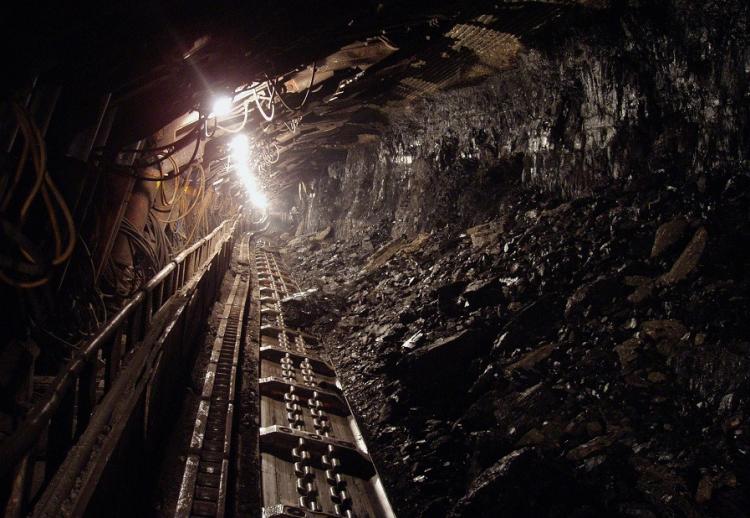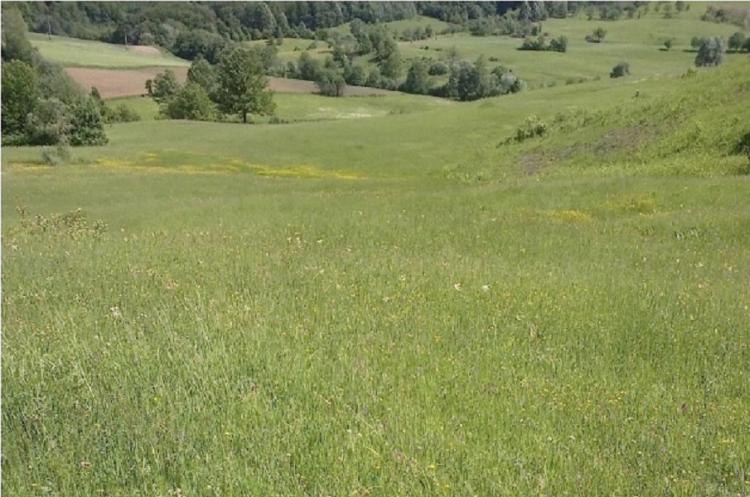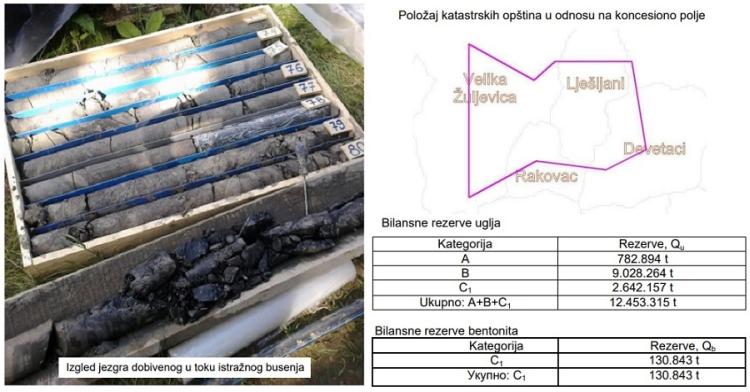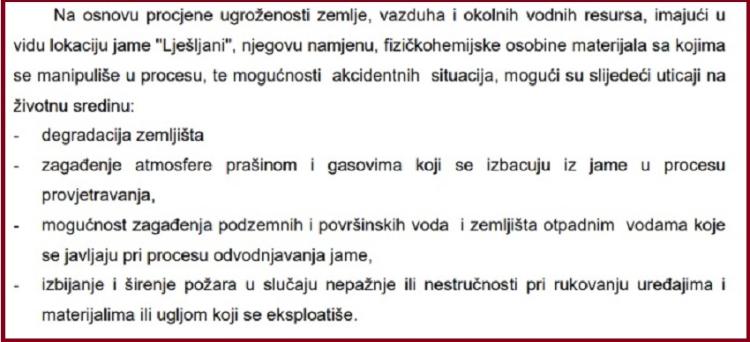
Ilustracija (Foto: Pixabay)
Due to the war in Ukraine and the jump in coal prices on the world market, Republika Srpska is becoming a destination for Russian investments again. The company “Privredni preporod”, owned by the family of Russian multimillionaire Oleg Burlakov, has decided to start the process of opening the “Lješljani” mine near Novi Grad, although the concession agreement has been violated several times, reveals the CAPITAL portal.
Ten years ago, the concession for the use of brown coal and bentonite at the “Lješljani” site was awarded to the company “Privredni preporod” registered in Banja Luka, owned by the family of Russian oligarch Oleg Burlakov, known to the general public for the affair and accusations that he gifted Milorad Dodik a kilogram of gold.
The period of 30 years, for which the company was given the concession to exploit the natural resources of Srpska, eight kilometres from Novi Grad, began on May 28, 2012, and lasts until May 28, 2042.
Oleg Burlakov
Two deadlines for starting the work of the mine were not met, the first was May 2015, and the second half of 2017. Four years ago (2018), negotiations were held on a new extension of the deadline for opening the mine, Burlakov visited Banja Luka, and his company then claimed that they were not giving up on that job. There were new promises made at the end of 2019, however, even then nothing started to be realized.
Meanwhile, Burlakov passed away last year, and his family is taking over the business. The world media reported that he is survived by his wife and two daughters, but also by his mistress, who is trying to prove through the courts that she has a child with Burlakov, likewise, inheritance lawsuits are being conducted.
Although 10 years have passed since the concession was awarded, and the contract has not been respected, the RS Government has not activated guarantees, nor revoked the concession to “Privredni preporod”. They agreed to “see through their fingers”, which cased a missed opportunity for Srpska to collect a guarantee of 1.1 million KM.
The promised investment of 23.4 million KM and the employment of about 150 new workers have been forgotten.
War and rising coal prices “forced” the Burlakovs to return
Due to the current war between Russia and Ukraine and rising coal prices, the Burlakovs have, after 10 years, after all decided to activate business in Srpska.
As CAPITAL finds out, they submitted a request to the Ministry of Physical Planning, Construction and Ecology in the RS Government for a preliminary environmental impact assessment for the underground mining project, ie coal and bentonite exploitation at the “Lješljani” deposit near Novi Grad.
Last week (March 15, 2022), the government officially launched a preliminary environmental impact assessment procedure.
The document for the preliminary environmental impact assessment, which is in the possession of CAPITAL, was prepared by the “Mining and Technological Institute” Prijedor on behalf of “Privredni preporod”. It claims that underground exploitation of coal and bentonite will be carried out.
“Therefore, the degradation of space and the impact on the environment will be significantly lower in relation to the deposits where surface exploitation is performed,” the Institute claims.
It is evident from the document that the area of the concession field of brown coal and bentonite deposits is 698 hectares, and the area on which mining facilities will be built is up to two hectares, where there is mostly agricultural land.
The Institute notes as important that the exploitation of coal in the Lješljan coal basin took place from 1910 to 1941, and the area where coal and bentonite is planned is located in the area of Rakovec, Velika Žuljevica, Lješljan and Devetak.

Terrain configuration (Source: Impact assessment data)
“In the part of the “Lješljani” deposit, where mining facilities are planned to be built, there are no housing and infrastructure facilities on the surface. The facilities, which will be in the zone of mining works on the surface or in the zone of influence of underground works, will be regularly monitored, and if there is an impact, they will be controlled and given guidelines for further use of facilities and other infrastructure”, the Institute said.
They add that the opening of the deposit of brown coal and bentonite will be reported from two parallel lowlands, and further elaboration of the deposit will be done with corridors, excavations and lowlands depending on the position of the deposit in relation to other facilities.
“Portals, entrances to lowlands and other mining infrastructure, coal and bentonite processing plant, workshops, bathrooms, kitchens, offices, coal dump and manipulative space will be built on the surface of the terrain”, they specified in the Institute where they identified reserves of coal and bentonite and its quality.

Lješljani Core (Source: Impact Assessment Data)
The quality of the coal seam coal was determined from 78 analyzes from 31 exploration wells.
The exploration area is dominated by the Vujanovića glavica and Džamište hills, while the Strižna, Luberska and Trnjevica rivers flow through the exploration area. These streams together with their tributaries drain groundwater and surface water from this area.
Usurpation of Una and endangerment of flora
The Institute states that during the exploitation of coal and bentonite, water will be used for drinking, sanitary needs and for the exploitation process.
“Drinking water and kitchen needs, as well as water for sanitary needs will be obtained from the local water supply system or by making private wells. The water that will be used in the process of exploitation for collecting dust will be used from a well or from accumulation”, the Institute states.
The possibility of usurping the Una River remains!
“If the needs arise, it is possible to build a water intake on the river Una and pump water to the future mine. The distance of the mine from the river Una is about six kilometres. If underground water appears during exploitation, it is possible to use it, by first cleaning it of mechanical impurities and then using it”, the Institute states.
Not only will there be a usurpation of water, in the area where the concession is planned, there is an abundance of oak, beech, hornbeam, maple, chestnut, linden, ash and acacia, fir, pine and spruce.
In the municipality of Novi Grad, there are a large number of animal species, including wild boars, deer, martens, foxes, badgers, rabbits, partridges, birds… In the rivers Sana and Una live trout, grayling, Huchen, barbel, chub, common nase, northern pike…
The mine will certainly have a significant impact on the environment, and this is confirmed by the Institute.

Borković: We see economic profitability in starting the mine
The director of “Privredni preporod” Dragan Borković confirmed for CAPITAL that the work on starting the mine has been updated.
“Given that the price of coal has improved, and especially due to recent events in the world, the project is justified in economic terms. Already, coal is 50 to 60 per cent, even 100 per cent, more expensive than a few months ago. If prices have stabilized, then we have more than the economic viability of the project. We have started the assessment of the impact on the environment and the determination of the exploitation field where the mine is being opened, the concession field was defined earlier”, said Borković.
After that, he added, the environmental permit will be issued and the main mining project will be certified, if everything goes well.
“As things stand now, then we could go to the opening of the mine with one of the mining companies with which we are in contact and which would be the contractor, given that there is a primary deficit in BiH, and as we can see now, even further”, Borković pointed out.
He added that the investor Oleg Burlakov passed away last year as a result of the coronavirus, and that his family took over the business and that the company's management is working.
Regarding the estimated value of the investment, Borković believes that there could be an increase in the funds they plan to invest. He added that, for now, the concession agreement has not been changed and that it depends on the concept that the mining company will choose, and which is the most suitable for the concession field in question.
“Maybe we will fit into the estimated value, and if there are changes, then we would have to change the concession agreement, for now, the old contract is in force”, said Borković.
He claims that 1.8 million KM have been invested in this project in the past ten years.
Changes after release
On March 23 (two days after the publication of the text), Borković gave CAPITAL an additional explanation of the views expressed regarding the implementation of the project: “The decision to continue the project of opening the Lješljani mine was made by the director of the “Privredni preporod” Dragan Borković and with the consent of Semyon Anufriev, director of the company “White Pearl S.a.r.l.” from Luxembourg and she has nothing to do with the widow and daughters of the late Oleg Burlakov. They have nothing to do with the project, neither formally legally nor substantially.”
Ministry: The public can submit remarks and suggestions
The Ministry of Physical Planning, Construction and Ecology of Republika Srpska stated that “Privredni preporod” submitted a request for a preliminary environmental impact assessment for the underground mining project.
“The interested public can inspect the content of the request on the website of the Ministry and submit their opinion. Remarks and suggestions can be submitted to the address of the Ministry or electronically “, they stated in the Ministry.
Interested parties can submit comments by March 30 this year.
The whole process will be monitored by the organization “Green team” from Novi Grad.
Crnković: We are surprised by the information
Mario Crnković from the organization “Green team” was surprised by the information conveyed to him by the journalist of the CAPITAL portal that the story of coal exploitation in the area of Lješljan is being started once again.
“Novi Grad is a local community that is committed to preserving a healthy environment in strategic documents, and when we add that the area of Lješljan is rich in sources of medicinal thermo-mineral water that are a huge potential for spa tourism, we end up in an extremely absurd situation”, said Crnković.
He adds that they are not familiar with the documentation on starting the mine, but that they believe that it will be the subject of detailed analyzes and that the process of involving the public in decision-making will be in accordance with the legal framework.
“At a time when the whole world is looking for ways to give up coal as one of the dirtiest sources of energy, it seems that our health here is still not important enough”, Crnković emphasizes.
Drljača: The municipality will demand the obligation to protect thermo-mineral waters
The mayor of Novi Grad, Miroslav Drljača, says that in the previous ten years, all variants of opening mines have failed.
“Now we have no information about the concept of opening the mine and where that coal and other ores would end up. It seems to me that the project is late, considering that the number of the available labour force and those interested in working in the mine in the area of the municipality is decreasing. However, it is never too late from the point of view of increasing the economic offer from the area of the municipality itself”, Drljača pointed out.
He added that the municipality will certainly demand that environmental standards be respected in the further process.
“What is certain is that this location is very close to the source and picnic area Lješljani and that the mining and use of thermo-mineral water at the same location, at the same time, is a bit problematic. What the mine will have as an obligation is not to endanger the use of thermo-mineral water at any time, Drljača emphasized, adding that he is in contact with potential other investors and that there are indications of arranging picnic areas, springs and even building accommodation capacities.
Kilogram of gold
Russian oligarch Oleg Burlakov attracted the attention of the domestic public in 2015, when former BiH Ambassador to Russia Gordan Milinić accused Milorad Dodik of receiving a one-kilogram gold bar from Burlakov as a bribe during his term as prime minister. Dodik denied all accusations, the Prosecutor's Office of BiH launched an investigation, but the case did not receive a court epilogue because the reports were rejected.
It is interesting that after the end of his ambassadorial career in Russia, Milinić was the director of “Privredni preporod” in Banja Luka. He announced megalomaniac investments, from the launch of “Terpentin” Višegrad, the purchase of “Borja” in Teslić, the Olympic Center Jahorina, “FAMOS” in East Sarajevo, to “UNIS” in Banja Luka.
After the outbreak of the “kilogram of gold” affair, Burlakov contacted RTRS and made counter-accusations, claiming that Milinić, as the director of the “Privredni preporod”, received 500,000 euros from him, and took the company into bankruptcy. In the end, after the affair was launched, the SDS rewarded Milinić with a director position in the BiH Agency for Foreign Investment Promotion (FIPA). After that, he ended up in the BiH Ministry of Foreign Affairs.


